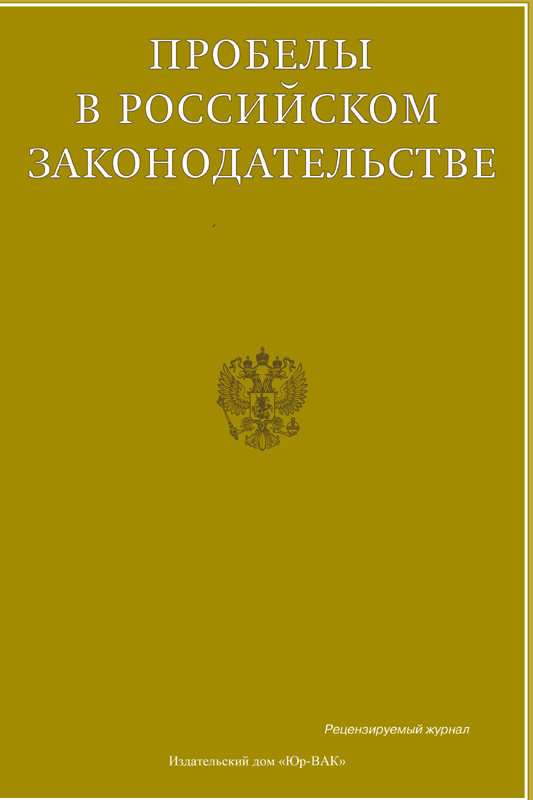The Object and Subject of the Crime Under Art. 200.3 of the Criminal Code of the Russian Federation: Problems of Theoretical and Law Enforcement Interpretation
- Autores: Turkin A.V.1
-
Afiliações:
- Rosstroyinvest holding
- Edição: Volume 15, Nº 1 (2022)
- Páginas: 92-96
- Seção: Articles
- URL: https://journals.eco-vector.com/2072-3164/article/view/531547
- ID: 531547
Citar
Resumo
The purpose of the study is to present an updated interpretation of the object and subject of the crime under Art. 200.3 of the Criminal Code of the Russian Federation, to determine the prospects for optimizing Art. 200.3 of the Criminal Code of the Russian Federation. On the basis of the study, the author proves that the direct object of the crime under Art. 200.3 of the Criminal Code of the Russian Federation, has a complex structure: the main object is public relations related to the attraction of funds from citizens for the shared construction of apartment buildings or other real estate; an optional additional object is the property interests of participants in shared construction. Article 200.3 of the Criminal Code of the Russian Federation does not recognize the funds of legal entities as the subject of a crime, although in accordance with Federal Law No. 214-FZ of December 30, 2004, legal entities are recognized as full participants in shared construction along with citizens (with individuals). Whitespace Art. 200.3 of the Criminal Code of the Russian Federation in terms of the impossibility of bringing to responsibility for illegally attracting funds from legal entities for shared construction entails diverse negative consequences: firstly, it leaves the rights and interests of legal entities in the field of shared construction without proper criminal law protection; secondly, it creates risks of illegal criminal prosecution of developers who unlawfully attract funds from the organization for shared construction. The article emphasizes that law enforcement filling the gaps in Art. 200.3 of the Criminal Code of the Russian Federation through the application of criminal law by analogy (due to a more repressive rule on liability for fraud) is unacceptable. The contradiction between the public danger of the act in question and the construction of Art. 200.3 of the Criminal Code of the Russian Federation requires legislative permission by expanding the subject of the corresponding crime.
Texto integral
Sobre autores
Alexey Turkin
Rosstroyinvest holding
Autor responsável pela correspondência
Email: a.v.turkin@yandex.ru
General Director Moscow, Russia
Bibliografia
- Asnis A.Ya. Criminal law novel about responsibility for encroachment on the legitimate interests of participants in the shared construction of apartment buildings // Legislation and Economics. - 2016. - No. 10.
- Vlasenko V.V. Raising funds from citizens in violation of the requirements of the legislation of the Russian Federation on participation in shared construction of apartment buildings and (or) other real estate objects (Article 200.3 of the Criminal Code of the Russian Federation): issues of criminal liability and exemption from it // Criminal Law. - 2018. - No. 1.
- Glistin V.K. The problem of criminal law protection of public relations (object and qualification of crimes). - L., 1979.
- Karabanova E.N. The concept of the object of crime in modern criminal law // Journal of Russian law. - 2018. - No. 6.
- Korzhansky N.I. Object and subject of criminal law protection. - M., 1980.
- Korzhansky N.I. Object of the crime // Encyclopedia of criminal law. T. 4. Composition of the crime / Ed. V.B. Malinin. - St. Petersburg, 2005.
- Nikiforov B.S. On the object of crime under Soviet criminal law // Soviet state and law. - 1956. - No. 6.
- Piontkovsky A.A. Criminal law of the RSFSR. Part General. - M., 1924.
- Pudovochkin Yu.E., Dorogin D.A. The doctrine of crime and the composition of the crime: a textbook. - M.: RGUP, 2017.
Arquivos suplementares









